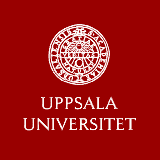Kalendarium
Högre seminarium11 jun 2019 kl. 15:15 – 17:00
Lokal: Engelska parken 16-3062
Harsha Ram (UC Berkeley)
World Literature and the Urban Everyday: The Physiology as Travelling Genre (Paris, St. Petersburg, Tiflis)
LILAe guest lecture. Co-organized with the research program "Cosmopolitan and Vernacular Dynamics in World Literatures" www.worldlit.se World Literature and the Urban Everyday: The Physiology as Travelling Genre (Paris, St. Petersburg, Tiflis) The study of world literature seems caught between two competing models: on the one hand, an abstract globalism, frequently mapped as a system of relations between centres and peripheries and, on the other, as a material circuit of exchange traceable as a series of interconnected networks. The former model has found particular favour in the privileged case of the novel, but how do things stand with other genres? My paper examines the physiology, a popular quasi-journalistic genre dedicated to the description of customs and social types, whose heyday coincided with the July Monarchy in France, and which gained unprecedented success in Russian letters shortly thereafter, after which it was also adapted to the circumstances of Russia’s own imperial borderlands. My talk outlines the essential contours of the physiology as it arose in France, and compares its French life with its Russian metropolitan counterpart, where it was transformed from a paraliterary genre to one that would occupy the centre of the Russian literary life in the transition from romanticism to realism. Its subsequent life in the Caucasus region reveals the rise of a colonial urban aesthetics of the picturesque, initially propounded by Russian writers from the metropole, but later appropriated by local Georgian and Armenian actors. Does this story confirm or confound the diffusionist model? How might it compare to the familiar account of urban flâneurie celebrated by Baudelaire, which is frequently regarded as the founding moment of literary modernity? Contact person: Julie Hansen julie.hansen@moderna.uu.se
